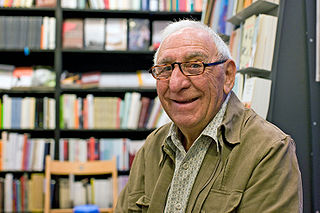A Quote by Harold Pinter
There are no hard distinctions between what is real and what is unreal, nor between what is true and what is false. A thing is not necessarily either true or false; it can be both true and false.
Quote Topics
Related Quotes
Either Christianity is true or it's false. If you bet that it's true, and you believe in God and submit to Him, then if it IS true, you've gained God, heaven, and everything else. If it's false, you've lost nothing, but you've had a good life marked by peace and the illusion that ultimately, everything makes sense. If you bet that Christianity is not true, and it's false, you've lost nothing. But if you bet that it's false, and it turns out to be true, you've lost everything and you get to spend eternity in hell.
We have hitherto considered only two possibilities: that the received opinion may be false, and some other opinion, consequently, true; or that, the received opinion being true, a conflict with the opposite error is essential to a clear apprehension and deep feeling of its truth. But there is a commoner case than either of these; when the conflicting doctrines, instead of being one true and the other false, share the truth between them.
Intuitionists think that there are cases in which, say, some identity statement between real numbers is neither true nor false, even though we know that it cannot possibly be false. That is: We know that it cannot not be that a = b, say, but we cannot conclude that a = b. We can't, in general, move from not-not-p to p in intuitionistic logic. , I suggest that the believer in vague objects should say something similar. It can never be true that it is vague whether A is B. But that does not imply that there is always a fact of the matter whether A is B.
All religions, plainly and simply, cannot be true. Some beliefs are false, and we know them to be false. So it does no good to put a halo on the notion of tolerance as if everything could be equally true. To deem all beliefs equally true is sheer nonsense for the simple reason that to deny that statement would also, then, be true. But if the denial of the statement is also true, then all religions are not true.
In regard to propaganda the early advocates of universal literacy and a free press envisaged only two possibilities: the propaganda might be true, or the propaganda might be false. They did not foresee what in fact has happened, above all in our Western capitalist democracies - the development of a vast mass communications industry, concerned in the main neither with the true nor the false, but with the unreal, the more or less totally irrelevant. In a word, they failed to take into account man's almost infinite appetite for distractions.





































